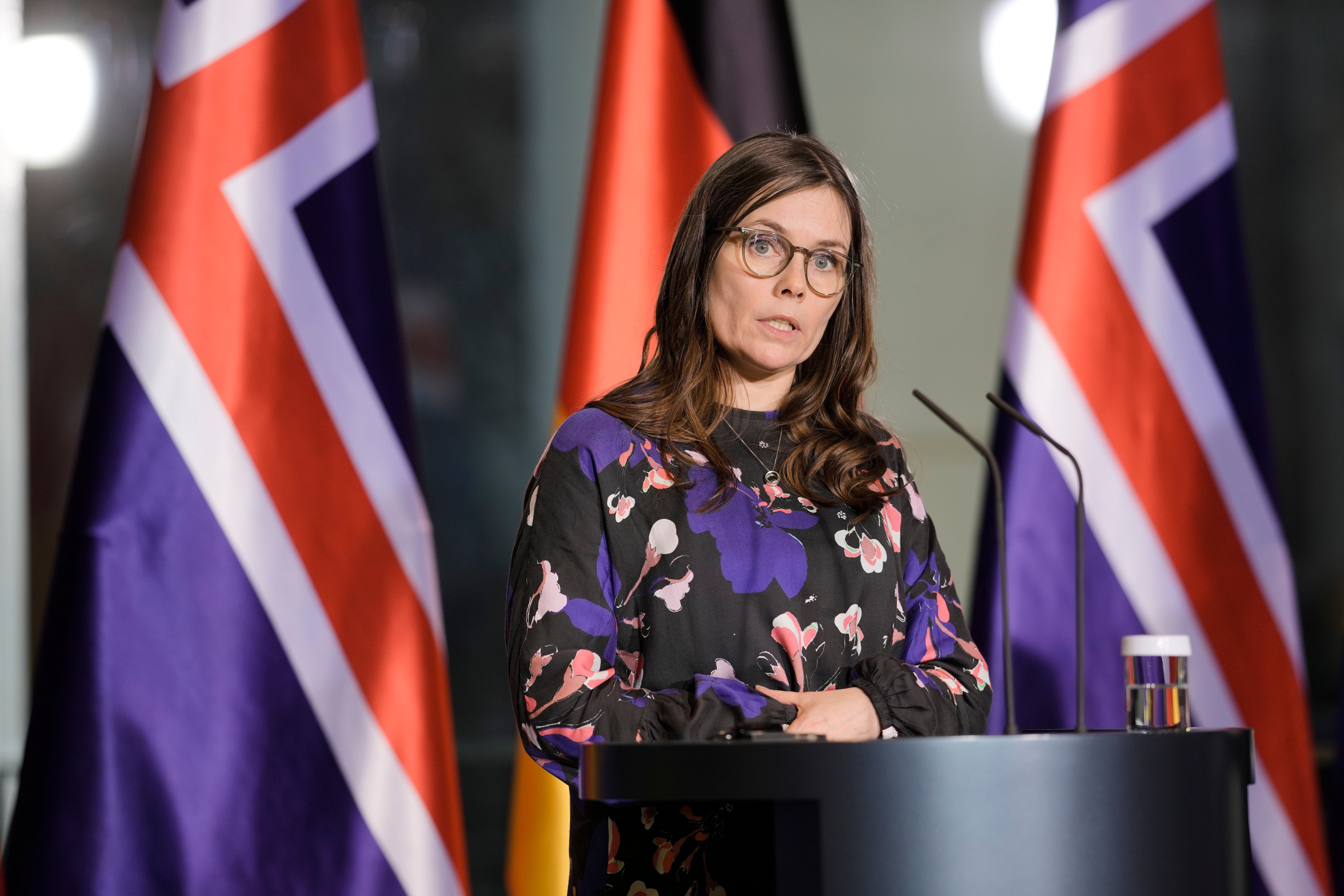Women in Iceland including the prime minister go on strike for equal pay and an end to violence
Iceland’s prime minister and women across the island nation are on strike to push for an end to unequal pay and gender-based violence

Iceland’s prime minister and women across the volcanic island nation went on strike Tuesday to push for an end to unequal pay and gender-based violence.
Prime Minister Katrin Jakobsdottir said she would stay home as part of the “women's day off,” and expected other women in her Cabinet would do the same.
“We have not yet reached our goals of full gender equality and we are still tackling the gender-based wage gap, which is unacceptable in 2023,” she told news website mbl.is. “We are still tackling gender-based violence, which has been a priority for my government to tackle.”
Organizers called on women and nonbinary people to refuse both paid and unpaid work, including household chores, during the one-day strike.
Schools and the health system, which have female-dominated workforces, said they would be heavily affected by the walkout. National broadcaster RUV said it was reducing television and radio broadcasts for the day.
Tuesday’s walkout is being billed as biggest since Iceland’s first such event on Oct. 24, 1975, when 90% of women refused to work, clean or look after children, to voice anger at discrimination in the workplace. The following year Iceland passed a law guaranteeing equal rights irrespective of gender.
The original strike inspired similar protests in other countries including Poland, where women boycotted jobs and classes in 2016 to protest a proposed abortion ban.
Iceland, a rugged island of some 340,000 people just below the Arctic Circle, has been ranked as the world’s most gender-equal country 14 years in a row by the World Economic Forum, which measures pay, education health care and other factors. No country has achieved full equality, an there remains a gender pay gap in Iceland.
Bookmark popover
Removed from bookmarks